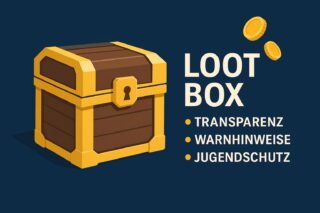The central problem is that players usually do not know the outcome before paying. The design of many games encourages repeated spending in the hope of obtaining a specific item. These mechanics can foster addictive behavior, and minors are considered particularly vulnerable. Courts have already intervened: In Austria, loot boxes in FIFA were classified as gambling, leading to refunds for players (ISA-GUIDE reported).

On 2 September 2025, the state government of Mecklenburg-Vorpommern adopted a Bundesrat initiative aimed directly at loot boxes. The goal is to strengthen youth and player protection in the digital sphere by aligning gambling law with youth protection regulations. The proposal focuses on three main aspects:
-
Transparency: Clear disclosure of potential contents and the probabilities of obtaining specific items.
-
Warning labels: Mandatory notices to raise awareness of risks.
-
Age ratings: Consistent classification of games with loot boxes to protect minors.
The initiative is scheduled to be presented to the Bundesrat on 26 September 2025. For the first time, this places loot box regulation formally on the federal legislative agenda in Germany. Experts and industry stakeholders had previously called for stronger action – for instance, in our report on the WestLotto call for a round table.
Whether the Bundesrat will adopt the initiative remains to be seen. What is clear, however, is that loot boxes are no longer just a niche issue for gamers, but a central point of debate at the intersection of gambling law, youth protection, and the digital economy.
